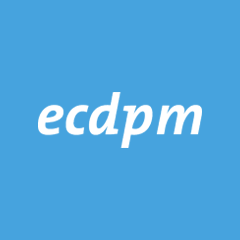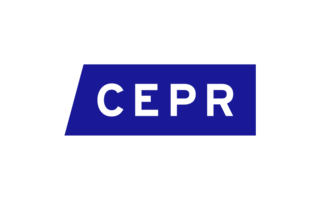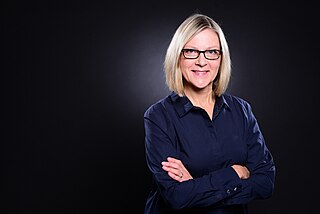
AEGIS is a research network of European centres on African studies in the fields of social science and humanities. AEGIS' main goal is to improve understanding about contemporary African societies.

AEGIS is a research network of European centres on African studies in the fields of social science and humanities. AEGIS' main goal is to improve understanding about contemporary African societies.
AEGIS was founded in 1991 by African studies centres in Bayreuth, Bordeaux, Leiden, London, and Uppsala. Initially an informal grouping of related African Studies' organisations and groups, AEGIS would formalise in 1998 through the adoption of a formal statute. In the same year, it elected its first executive committee, which included Patrick Chabal as chair. In the course of a decade, it developed into a network that included centres from more European countries. [1]
Starting in 1998, international conferences on a variety of thematic areas were organized in different countries. AEGIS continues to host thematic conferences (not to be confused with the ECAS gatherings, detailed below).
AEGIS organises itself into small thematic groups (also called Collaborative Research Groups, or CRGS), focusing on specific subjects within the field of African Studies. Examples include 'CRG Africa in the Indian Ocean', 'CRG African Borderlands Research Network' and 'CRG African Migration, Mobility and Displacement (AMMODI)'. [1]
The current board consists of AEGIS President and Professor Amanda Hammar (CAS Copenhagen), Dr. David Ambrosetti (LAM Bordeaux), Professor Michael Bollig (Cologne), Professor Marleen Dekker (Leiden), Dr. Tom Molony (Edinburgh) and Dr. Isabella Soi (Cagliari). [1]
In the new millennium, the organization of European Conferences on African Studies (ECAS), open to everybody, became the central activity. The conferences take place every two years, always in a different country. [2] ECAS 2021, scheduled to be held in Cologne, was postponed to June 2023.

The European Union Aviation Safety Agency (EASA) is an agency of the European Union (EU) with responsibility for civil aviation safety. It carries out certification, regulation and standardisation and also performs investigation and monitoring. It collects and analyses safety data, drafts and advises on safety legislation and co-ordinates with similar organisations in other parts of the world.

Stockholm International Peace Research Institute (SIPRI) is an international institute based in Stockholm. It was founded in 1966 and provides data, analysis and recommendations for armed conflict, military expenditure and arms trade as well as disarmament and arms control. The research is based on open sources and is directed to decision-makers, researchers, media and the interested public.

Klaus-Heiner Lehne is a German lawyer and politician who has been serving as member of the European Court of Auditors (ECA) since 2014. From 2016 until 2022, he was its 11th President

Nordic Africa Institute serves as a research, documentation and information centre on modern Africa for the Nordic countries. The Institute also encourages research and studies on Africa. The institute was founded in 1962.

Although there has been a large degree of integration between European Union member states, foreign relations is still a largely intergovernmental matter, with the 27 states controlling their own relations to a large degree. However, with the Union holding more weight as a single entity, there are at times attempts to speak with one voice, notably on trade and energy matters. The High Representative of the Union for Foreign Affairs and Security Policy personifies this role.

African studies is the study of Africa, especially the continent's cultures and societies. The field includes the study of Africa's history, demography, culture, politics, economy, languages, and religion. A specialist in African studies is often referred to as an "africanist".

The European Centre for Development Policy Management, more commonly known as ECDPM, is a think tank founded in 1986. It is headquartered in Maastricht, Netherlands and has a second office in Brussels, Belgium.

The Centre for Economic Policy Research (CEPR) is an independent, non‐partisan, pan‐European non‐profit organisation. It aims to enhance the quality of policy decisions through providing policy‐relevant research, based soundly in economic scholarship, to policymakers, the private sector, and civil society.

The African Studies Centre is a scientific institute in the Netherlands that undertakes social-science research on Africa with the aim of promoting a better understanding of historical, current and future social developments in Sub-Saharan Africa. The centre is an interfaculty institute of Leiden University. The present director since 2021 is Marleen Dekker. The institute is located in the Pieter de la Court Building of Leiden University’s Faculty of Social Sciences.
COMMUNIA is a thematic project funded by the European Commission within the eContentplus framework addressing theoretical analysis and strategic policy discussion of existing and emerging issues concerning the public domain in the digital environment - as well as related topics, including, but not limited to, alternative forms of licensing for creative material; open access to scientific publications and research results; management of works whose authors are unknown.

The CBS International Business School (CBS) is a state-recognised, private business school which emerged in 2020 from the individual brands Cologne Business School (CBS) and European Management School (EMS). At its locations in Cologne, Mainz, Potsdam, Aachen, Brühl, Neuss and Solingen, it offers approximately 3,000 students its predominantly English-language business management study courses with the academic degrees Bachelor of Arts, Bachelor of Science, Master of Arts, Master of Science and MBA. The CBS Cologne Business School GmbH is the responsible body of the university.

The Centre for Genomic Regulation is a biomedical and genomics research centre based on Barcelona. Most of its facilities and laboratories are located in the Barcelona Biomedical Research Park, in front of Somorrostro beach.
Olufunke Adeboye is a Nigerian professor of Social History at the Department of History and Strategic Studies of the University of Lagos, Nigeria, where she is also the incumbent Dean of the Faculty of Arts. Adeboye's research interests include gender in Africa, pre-colonial and colonial Nigerian history, nineteenth and twentieth century Yoruba society, African historiography, and Pentecostalism in West Africa. In 2013, she won the Gerti Hesseling Prize awarded by AEGIS for the best journal article published in a European African Studies journal by an African scholar.
Rufus Taiwo Akinyele is a Nigerian professor of African History at the University of Lagos, and the Vice Chancellor of Maranatha University, Lagos. His research interests cut across the fields of African history, inter-group relations and border studies, and he has published numerous articles in several peer-reviewed journals in these areas. With his studies on the Oodua Peoples' Congress among others, he has earned recognition as one of the leading authorities on ethnic militia across the world. Akinyele is the convener of the International Multidisciplinary Conference on ‘Land and Development’ at the University of Lagos.

The European Union–Sudan relations are the international relations between the European Union (EU) and the Republic of the Sudan.
Deborah Fahy Bryceson is a British academic currently affiliated to the Centre of African Studies (CAS) at the University of Edinburgh and University of Uppsala. She pioneered research into sectoral change in Africa, looking primarily at 'transnational families' and coining the terms 'de-agrarianisation' and 'mineralized urbanization'. She has published 16 books and over 130 journal articles and book chapters, specialising on livelihood, labour, urbanization and agrarian studies.
The African Studies Association Italy is an Italian learned society of about 100 Africanists and is based both at the University of Urbino and Roma Tre University. ASAI was founded in 2010 and is an associated member of the AEGIS network of African studies centres in Europe.

Les Afriques dans le monde (LAM) is a French academic research institute in Pessac, France focusing on Africa and its diaspora.
The Institut des mondes africains (IMAF) is a French academic mixed and interdisciplinary research unit for African studies, in which the national research organisation CNRS, three other French national academic research institutions and two universities collaborate. They are the Institut de recherche pour le développement, the École pratique des hautes études (EPHE), the École des hautes études en sciences sociales and the Aix-Marseille University and the Pantheon-Sorbonne University.

Katja Werthmann is a German ethnologist with a regional focus on West Africa. She is a professor for 'Society, politics and economy of Africa' at the Institute for African Studies at the University of Leipzig. K. Werthmann conducts research in Anglophone and Francophone Africa on the handling of material and symbolic resources in the context of spatial and social mobility in contemporary Africa. She has made contributions to political, economic, religious and urban ethnology. After the Doctorate at the Freie Universität Berlin and the Habilitation at the Johannes Gutenberg University Mainz she taught at universities in Germany, Switzerland (Zürich) and Sweden (Uppsala). Since 2012 she has been a university professor at the University of Leipzig.